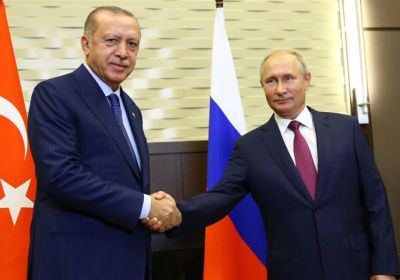
Russian president Vladimir Putin, the main backer of Syrian dictator Bashar al-Assad, met with Turkish president Recep Tayyip Erdogan, which has supported the rebels seeking to overthrow Assad, in the southern Russian town of Sochi on September 17.

Russian president Vladimir Putin, the main backer of Syrian dictator Bashar al-Assad, met with Turkish president Recep Tayyip Erdogan, which has supported the rebels seeking to overthrow Assad, in the southern Russian town of Sochi on September 17.
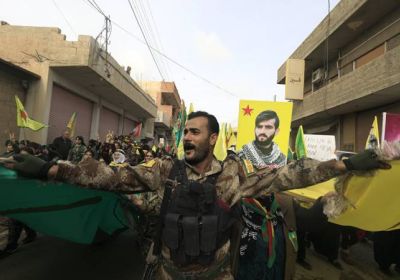
The Assad regime and its allies have been building up their forces around the rebel-held Idlib province, in Syria’s north-west, in preparation for a major offensive. Some bombing raids have already been carried out in the south and west of the province.
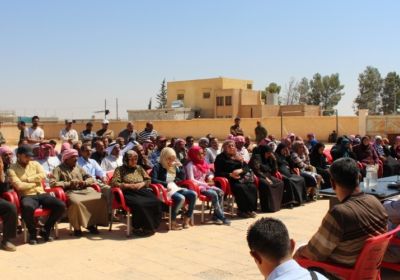
Manjib is an ethnically diverse city in northern Syria. In 2014, it was occupied by ISIS (also known as Daesh). In 2016, the Syrian Democratic Forces (SDF, an alliance of armed groups supporting the model of grassroots democracy associated with the Rojava Revolution) had liberated the city.
Emel Dede is one of the Manbij Turkmen women who lived under the Syrian regime first, and then the Free Syrian Army and Daesh. She has been working for two years now for her future and the future of Manbij. She talked to Bêrîtan Sarya and Axin Tolhildan about this.
The world is looking the other way as Turkey plans to build on its successful occupation of Afrîn to expand its power with a new round of ethnic cleansing, John Tully writes.
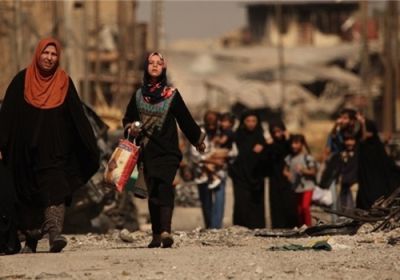
The Democratic Autonomous Administration of Afrin Canton in Syria’s north, which is resisting Turkey’s occupation, has warned all Syrians that Turkey’s murderous attack aims at ethnic cleansing.
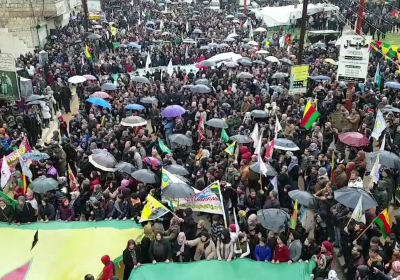
Turkey’s murderous invasion of the Afrin canton in Syria’s north, backed explicitly or implicitly by Russia and the US, succeeded in taking the canton’s capital on March 18. But Kamran Martin says this is far from the end for the Kurdish-led resistance in defence of the democratic revolution in the region.